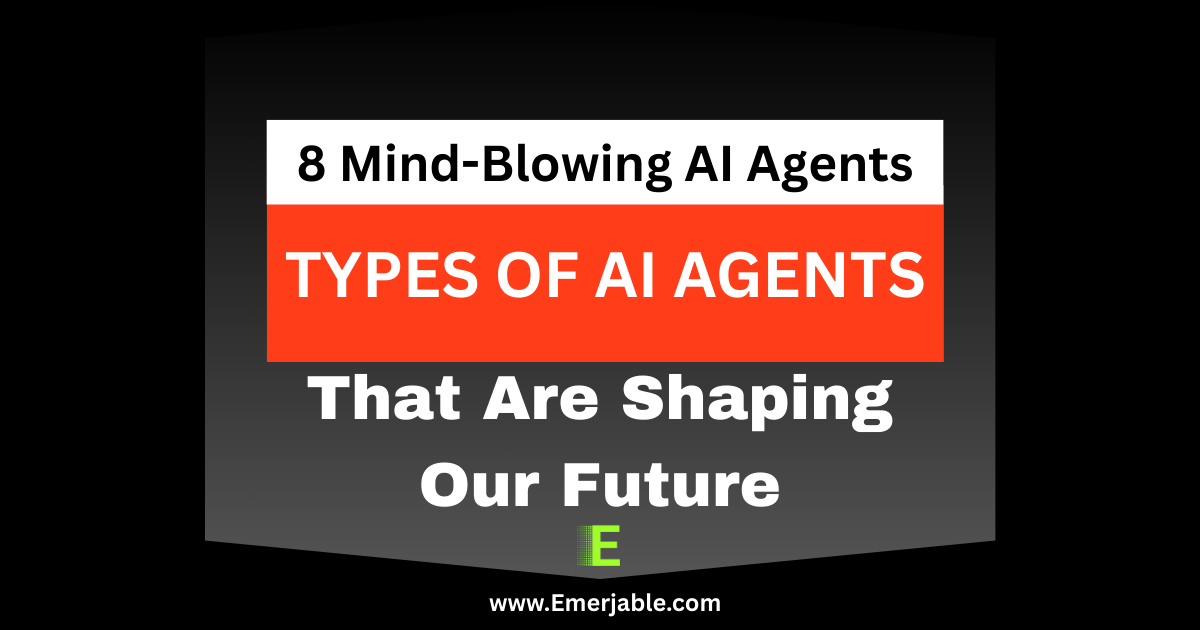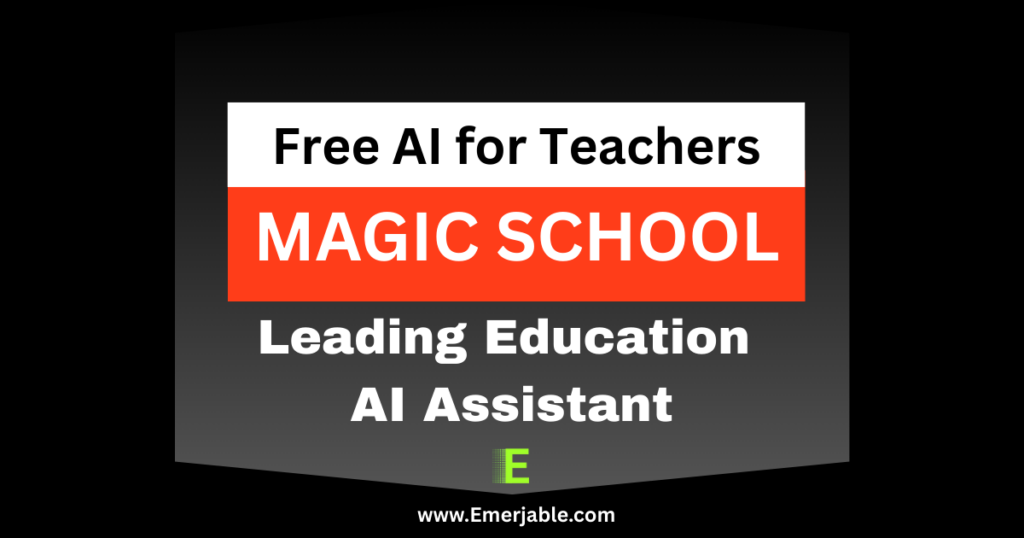Artificial Intelligence (AI) is changing the way we live and work—and at the heart of it are AI agents. But what exactly are AI agents, and why should you care?
In this guide, we’ll break down the 8 main types of AI agents in simple terms with real-world examples. This article is written for students, professionals, and tech-curious individuals looking to understand AI better.
🔍 What is an AI Agent?
An AI agent is a program or system that perceives its environment, makes decisions, and acts to achieve goals. Different types of AI agents vary based on how they think, learn, and make decisions.
Let’s explore each one:
1. Simple Reflex Agents
- How it works: Acts only based on current input (no memory or learning).
- Logic used: IF-THEN rules.
- Limitation: Can’t adapt or remember past experiences.
- Examples:
- Basic chatbots
- Thermostats
2. Model-Based Reflex Agents
- How it works: Maintains a small internal state (memory of the world).
- Uses: Past information to make smarter decisions.
- Benefits: More flexible than simple reflex agents.
- Examples:
- Game AI bots
- Smart home automation systems
3. Goal-Based Agents
- How it works: Uses goals to decide the best action.
- Makes decisions: Based on future outcomes.
- Smart at: Pathfinding, planning.
- Examples:
- AI for delivery route optimization
- Task-oriented bots
4. Utility-Based Agents
- How it works: Chooses action with the best utility (value/benefit).
- Advanced: Considers multiple goals and trade-offs.
- Ideal for: Risk-based decision-making.
- Examples:
- Stock trading bots
- Recommendation engines
5. Learning Agents
- How it works: Learns from experience and improves over time.
- Includes: A performance and learning component.
- Adapts: To new environments automatically.
- Examples:
- Self-driving cars
- AI learning tutors
6. Autonomous Agents
- How it works: Perceive ➜ Plan ➜ Act ➜ Learn (on their own).
- Unique: Combines memory, reasoning, planning, and feedback.
- Fully Independent: Needs little to no human input.
- Examples:
- Personal AI Assistants (like AI agents in robotics)
- Autonomous drones
7. Agentic AI Agents
- How it works: Multiple AI agents interact or work together.
- Flexible: Can cooperate or compete.
- Great for: Distributed tasks, team-based problem solving.
- Examples:
- Swarm robotics
- Game AI that collaborates
8. LLM-Based Agents (Large Language Models)
- How it works: Powered by large AI language models like ChatGPT.
- Specialized in: Understanding, reasoning, writing, planning.
- Used in:
- Customer support
- AI co-pilots for work
- Examples:
- AutoGPT, Langchain, ChatGPT Agents
🛠️ Best Tools to Work With AI Agents
Here are some powerful tools to explore and build AI agents:
| Tool | Use Case |
|---|---|
| ChatGPT / OpenAI API | For building LLM-based agents |
| Langchain | Connects tools and data with LLMs |
| AutoGPT / AgentGPT | Automates multi-step agent tasks |
| TensorFlow / PyTorch | For training custom AI agents |
| ReAct Framework | Agent-based decision making in AI |
| Google Dialogflow | For voice and chatbot-based agents |
| Unity ML-Agents | Build game AI agents |
| Amazon SageMaker | Train and deploy agents at scale |
💡 Real-World Use Cases of AI Agents
- 🛒 E-commerce: Product recommendation engines (Utility-Based Agents)
- 🚗 Automotive: Self-driving cars (Learning Agents, Autonomous Agents)
- 📞 Customer Service: Chatbots and AI assistants (Simple Reflex / LLM-Based Agents)
- 🧠 Education: AI tutors that adapt to student learning styles (Learning Agents)
- 📊 Finance: AI stock trading bots (Utility-Based Agents)
- 🤖 Smart Homes: AI for energy saving & automation (Model-Based Reflex Agents)
📝 Final Thoughts – Types of AI Agents
Understanding the different types of AI agents is key to unlocking how intelligent systems work. Whether you’re building bots, using AI tools, or just curious, this guide gives you a strong foundation.
👉 Next step: Explore these tools or try using LLM-based agents like ChatGPT to solve real-world problems in your life or business.
Learn More;
- 10 Powerful ChatGPT Prompts for Content Creators Use to Create Unique & Actionable Content
- ChatGPT Prompts for Job Interview (Best LLM Prompts)
- 20 ChatGPT Prompts That Will Blow Your Mind – LLM Prompts
- Unlock the Power of ChatGPT: 20 Golden Rules for Writing Effective Prompts
- Mastering ChatGPT Prompt Frameworks: Simple Guide to Write Better Prompts
- 30 Powerful ChatGPT Prompts Can Help You in Finance



